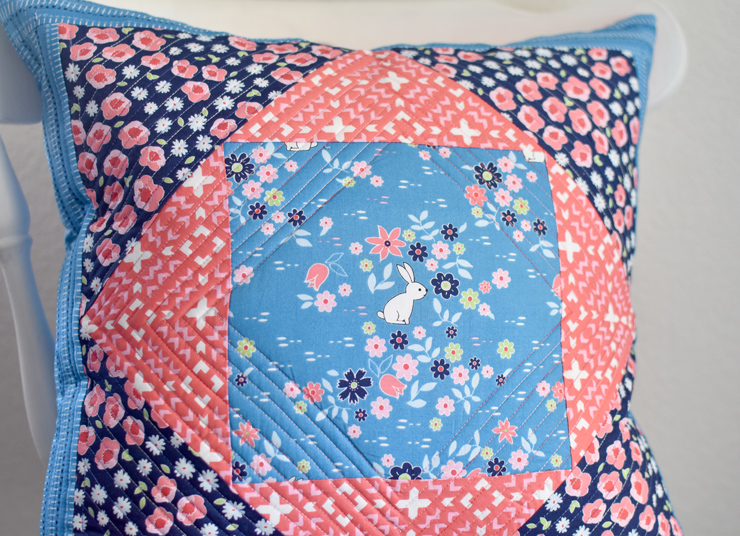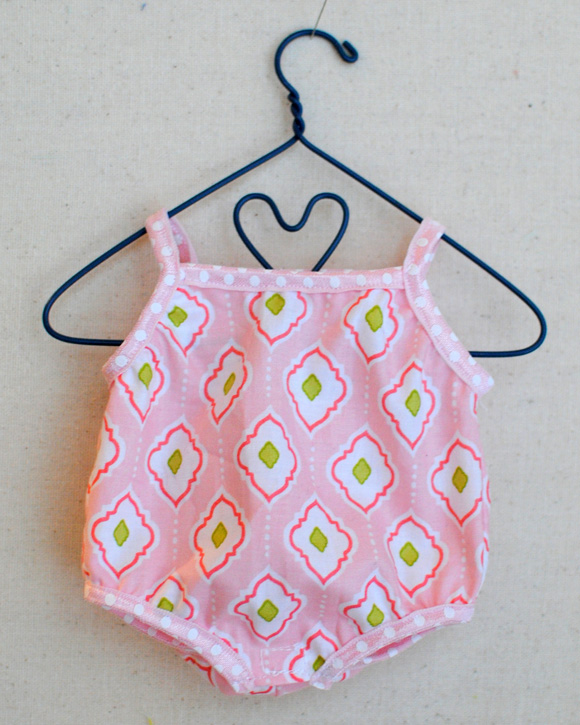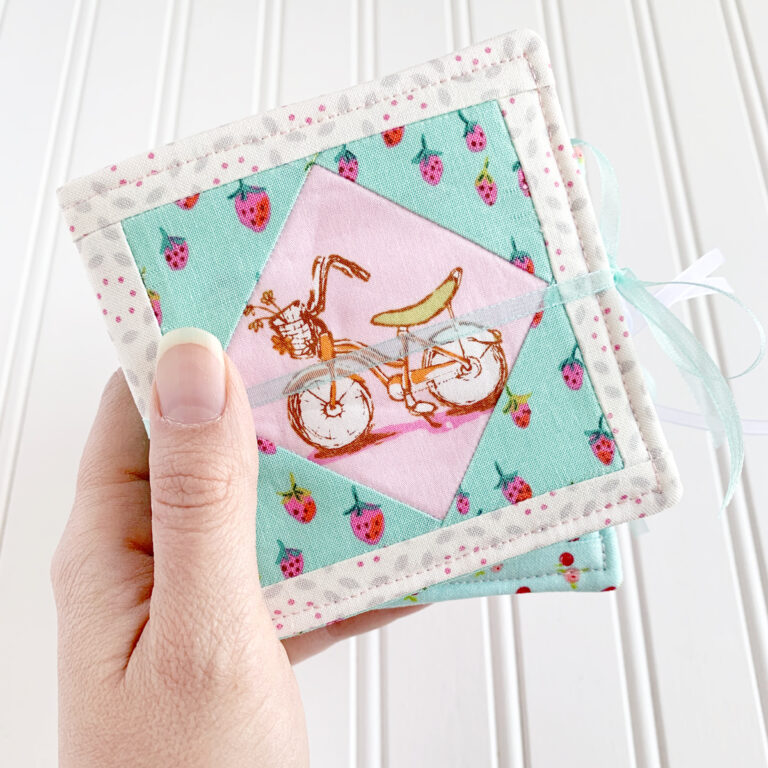Embroidery 101: French Knot
The second stitch is another basic, the French Knot. I’ll admit, I always used to have troubles with my French Knots, they would either untie or be too bulky, and I was never pleased. I’ve learned a few things since, which may be common sense, but hopefully it will help all the beginners out {or anyone who may be having troubles like I did}.
I found the French Knot process a little difficult to photograph, so if there is anything I can do to make it more clear, please let me know! Remember, French Knots are one size that only varies depending on thread. If you have a larger circle to fill in with French Knots, then make a small cluster. So, here is goes:
The dot in the center of this diagram is the spot for the French Knot. The arrow is to help indicate that the thread is wrapping around the needle…it will not be in a stitching diagram, it just seemed a little more helpful than just a single dot.
Bring the thread up near the center of the dot, making sure to leave a tail in back for weaving in. If you’re making a single French Knot, weave the tail into some other stitching to secure the thread.
Wrap the thread one time around the needle, keeping it close to the base of the fabric. Even if it seems like wrapping it more than once will produce a better knot {one of my former beliefs}, stick to a single wrap. If It is not significant which direction the thread is wrapped around, but consistency will keep the knots looking uniform.
After wrapping the thread around the needle, stick the needle back through the fabric, close but not into the original hole {otherwise the knot will untie}. Tighten the thread around the needle at the base of the fabric before pulling the needle through. The remaining thread will then form a loop through the center of the knot as you pull it through the fabric.
The finished knot should be secure, but not too tight. I found French Knots one of the more difficult stitches to get a nice, even routine, so I suggest working a few practice knots until you’re happy with the results.
As usual, if you have any questions, I’ll be happy to help out!






Love this guide 🙂
I was shown French knots at the beginning of my fashion AS Level and I’ve never quite gotten the hang of them! But I shall keep trying with your tips.
Florrie x
I just finished a tote {actually posted it on my blog this morning, even!} using french knots. I agree that they can be tricky to get the hang of, but once you have them down, they add AWESOME texture.
Thank you, this is great! I usually just twist the needle around the thread a few times and hope for the best. lol
Hope you don’t mind me doing this, but I found a couple of good tutorials on youtube for french knots. It helps me a lot to see it in ‘live action’
http://www.youtube.com/watch?v=W1Cq24d5-8s&feature=related
http://www.youtube.com/watch?v=6eYMwLnYR3g&feature=related
I, too, have always had problems with them, so we’ll see!
When I was a teenager a neighbor of ours would do a lot of embroidery. When she was finished she’d bring it to me to do the French Knots. I was too young to know they were hard:)
I have always wanted to learn how to make a french knot…very cool!
These are tricky to do and explain! Again, being self-taught I always just wrapped the thread around a few times and hoped for the best as someone else said! I’ll start being more careful and consistent!
Thank you!!!!! The trick of tightening the thread before putting the needle back through was the key thing I was missing. You have saved my husband from having to hear me fuss every time I try to make a french knot. 🙂
Hi folks! I have referred to your embroidery tutorials twice in the last 2 days…I’m in the Christmas Sew Along and thought I had a handle on embroidery stitches, but I’ve already improved my French knot and the double cross stitch thanks to your tutorials…wonderfully done. Thanks for sharing your expertise!
Cheers!
I know this might sound odd, but do I need to do anything with the back side (or the under side) of the fabric, so the knot doesn’t come untied???
I did some french knots this am & found they became very loose & had to cut them out.
Oh My God It is so simple to use .
Thanks for sharing this amazing simple knot.